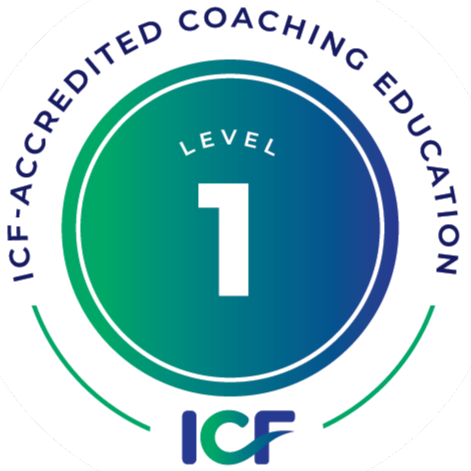
By: Patrick Williams, BCC, MCC
The Coaching industry, my books, and the teachings of ILCT have been emphasizing for 20 years now that coaches avoid advising their clients. The key term of this teaching needs to be looked at honestly.
The term ‘avoid” advising is correct in my opinion. My writings and our teaching at ILCT does correctly express that coaches should not tell or direct their clients. But we do teach that the coach can offer ideas for a list of possibilities for the client, we suggest expanding ideas that the client presents, and we all suggest books or articles to our clients. Let’s be honest, that is a form of advising.
Even if you call it requesting or suggesting, or an invitation to consider, your client hired you because of your expertise, and knowledge of coaching; and probably because of who you are more that what you know. Because we are in a relationship of influence, there is a certain expectation of wisdom or new ways of working or being will come from the coaching. That relationship of influence will, by default, have a certain presence of advice or direction given, even if it is unconscious.
Now lets be clear. I am definitely holding that you should rarely (yes there are times advice may actually be necessary) tell or imply to a client what to do regarding their challenge or goal. But we do offer forms of advice, even if we are saying it is just for the client to consider and then choose….it is still borderline advising.
In a 2006 study called What Role Does Advice Play in Professional Coaching, by Mike Alafaci of Queensland Australia, his research makes some interesting findings.
Using the data obtained from 315 respondents from Australia, the USA and the UK, a comparison was drawn between coaches’ behavior and client’s expectations. Drawing on reliable definitions of coaching and advice, the findings were discussed with reference to relevant literature and scientific theory on advice, from coaching and related helping professions. Consideration was then given to how the results might be taken forward.
With this in mind, Alafaci goes on to define two types of advising:
Advice
The American Heritage® Dictionary (2000) defines advice as:
Definition 1: Opinion about what could or should be done about a situation or problem.
Definition 2: Information communicated.
Alafaci’s research employed both definitions of as“they serve to underscore the controversy and dangers of advice, and to differentiate constructive advice from destructive advice.
The first definition of advice: “An opinion about what could or should be done” highlights a potentially dangerous form of advice in coaching. For example, I think you should (or could) accept their offeris an opinion.
The word “opinion” is defined by American Heritage® Dictionary (2000) as: A belief or conclusion held with confidence but not substantiated by positive knowledge or proof. And the word “should” is defined as: Something, such as an order, promise, requirement, or obligation: You should do that now. Advice in this form implies the coaches projecting their own judgment instead of honoring the client’s own interpretations and decisions. It also implies a lack of initial choice on the part of the recipient of such advice.
The second definition of advice: “Information communicated” illustrates a potentially constructive form of advice – depending on how and when it is applied. Therefore, to advise, can be to provide or offer information or resources. Such information may not necessarily be expert in nature, as resources can be many and varied, and there is no existence of requirement or obligation. Advice in this form implies choice on the part of the recipient.
He also delineates common definitions of coaching in this way:
How does the literature define coaching?
Coaching
The American Heritage® Dictionary (2000) defines coaching as: To train or tutor or to act as a trainer or tutor. The Times English Dictionary (2000) explains much the same thing, that a coach is a trainer or instructor.
Definitions of coaching by respected authors, institutions and members of the coaching profession are:
Whitmore et al (1996) define Coaching as unlocking a person’s potential to maximize their own performance.
Downey (1999) defines Coaching as the art of facilitating the performance, learning and development of another.
Buck (2005) says coaching is: inspiring an individual or team to produce a desired result through personalized teaching, expanding awareness and designing environments.
The International Coach Federation (2006 online) says: "Coaching is an ongoing partnership that helps clients produce fulfilling results in their personal and professional lives. Through the process of coaching, clients deepen their learning, improve their performance and enhance their quality of life."
Learning, performance and development are found to be common among these definitions.
This becomes important in that his research results show that clients (88%) do not want their coach to tell them what to do, but 95% of clients agree that they ‘would expect to learn something from my coach.’ The article states, “These findings are consistent with Buck (2005) who says coaching does contain a teaching component, and that most people hire a coach because they believe the coach has knowledge and experience to share. The findings are also consistent with Whitmore (2004) who says that coaching helps unlock a client’s potential and is about helping them to learn rather than teaching them.
If you are hired for some specialty or niche coaching, such as Leadership, Wellness, Relationships, Public Speaking, Career, and Business, it is to be expected that you know something specific to the specialty.
I have not hired business coaches for them to know stuff and then just ask me powerful questions and never give me knowledge or guide me to knowledge that would improve my business. I hired writing coaches to elicit my inner writer but also guide me to learn specifics to help me be a better writer. Our clients do expect us to transmit, in some way, our knowledge and/or experience.
But here’s the trick, as we teach it at ILCT. First and foremost, evoke new thinking and ideas from the client relevant to what they seek. Then after several ideas and thoughts are elicited from the client, you may offer some thoughts, ideas, or even potential resources. This is still avoiding telling what they SHOULD or SHOULD NOT do. It is really more about things they can choose by their own volition, while learning what they did not know before. Through coaching, clients say what they have not said, see what they have not seen, hear what they have not heard and do it out loud to a designated listener…their coach.
It is the art of coaching, dance for a while and then offer some new moves to try out.
The research paper from Alafaci backs this up when he finds that 94.6% of clients want a coach to understand them before giving advice.
The findings in this paper, support other literature that suggests client expect advice…. just not direct telling or fixing.
And in summary, the study found that the role of advice in coaching may be to provide information at the right time, in the right way, and to support the client’s performance, personal development, their uniqueness and independence.
And what really goes on behind closed doors of coaches? I suspect many coaches give much more advice than they think they do. As you get mentoring and become a more reflective learner of your coaching, you will honor the code of eschewing the style of advice that includes telling and directing, but will gracefully offer thoughts, resources, and your own experience or knowledge to the coaching relationship for expanding the client’s awareness and choice. After all, isn’t that the end goal?
Join Pat as he leads a discussion on this interesting quandary in the coaching profession...
Do we or don’t we offer advice as coaches?




